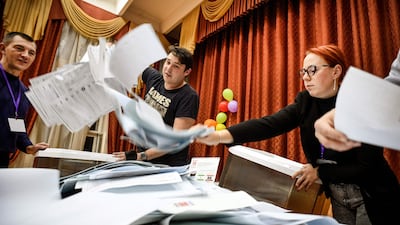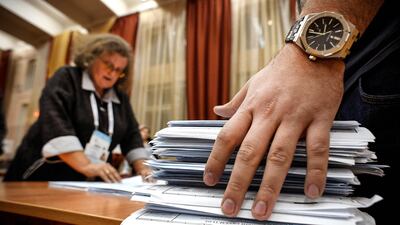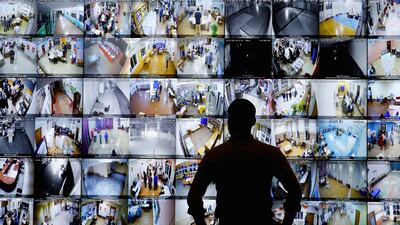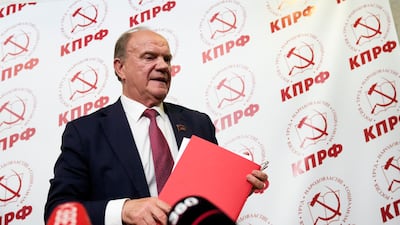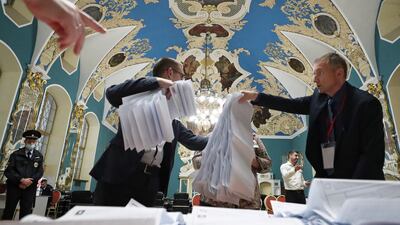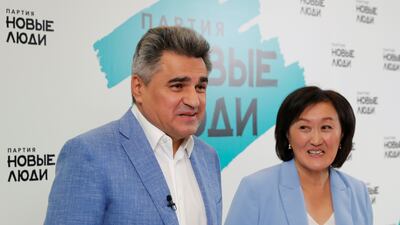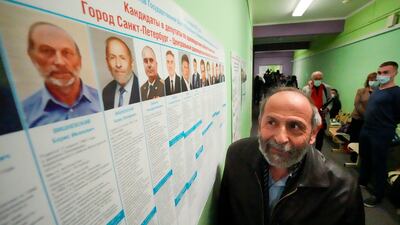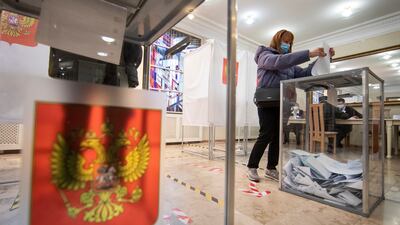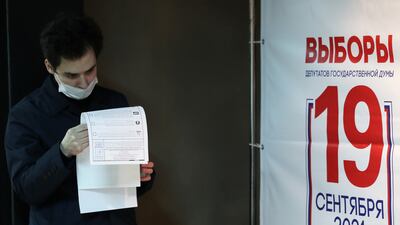President Vladimir Putin's United Russia party has retained its parliamentary majority after last week's elections but discontent eroded support in some regions, partial results on Monday showed.
With nearly 74 per cent of ballots counted, the Central Election Commission said United Russia had won nearly 49 per cent of the vote, with its nearest rival, the Communist Party, at about 20 per cent.
Although an emphatic win, it is weaker than the more than 54 per cent of the vote the party secured in the 2016 election.
United Russia's general council secretary Andrei Turchak told reporters the party would win 120 seats from the party list and 195 single-mandate seats after the three-day election that ended on Sunday, giving it 315 in the 450-member chamber.
Turchak said the party had won a "convincing and clean victory" and had not seen any significant violations during the polls.
He said United Russia had also won in local legislative polls in 39 regions.
Years of faltering living standards and allegations of corruption from jailed Kremlin critic Alexei Navalny have drained some support, compounded by a tactical voting campaign organised by Navalny's allies.
Kremlin critics alleged large-scale vote-rigging after a pre-election crackdown that banned Navalny's movement, barred his allies from running and targeted critical media and non-government organisations.
Electoral authorities said they had invalidated any results at voting stations where there had been obvious irregularities and that the overall contest had been fair.
Mr Putin, 68, remains a popular figure with many Russians who credit him with standing up to the West and restoring national pride. He was due to deliver a speech on Monday.
The partial results showed the Communist Party finishing second, followed by the nationalist LDPR party, with about eight per cent, and the Fair Russia party, with about seven per cent. All three parties usually back the Kremlin on most key issues.
The Central Election Commission was slow to release data from online voting in Moscow, where United Russia traditionally does not fare as well as in other regions amid signs it may have lost some seats in the capital.
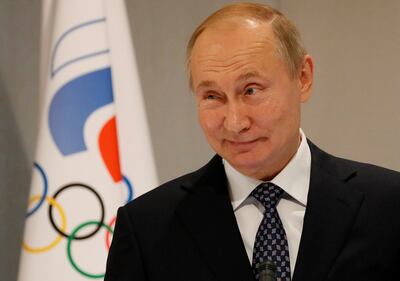
Golos, an election watchdog accused of being a foreign agent by authorities, recorded thousands of violations, including threats against observers and ballot stuffing, examples of which circulated on social media, with some individuals caught on camera appearing to deposit bundles of votes in urns.
The Central Election Commission said it had recorded 12 cases of ballot stuffing in eight regions and that the results from those polling stations would be declared void.
United Russia held nearly three quarters of the outgoing State Duma's 450 seats. That dominance helped the Kremlin pass constitutional changes last year that allow Mr Putin to run for two more terms as president after 2024, potentially staying in power until 2036.
Navalny's allies were barred from running in the election after his movement was banned in June as extremist. Other opposition figures allege they were targeted with dirty tricks campaigns.
"One day we will live in a Russia where it will be possible to vote for good candidates with different political platforms," Navalny ally Leonid Volkov said on Telegram messenger before polls closed on Sunday.
"I don't see the point in voting," said one Moscow hairdresser who gave her name as Irina. "It's all been decided for us anyway."
